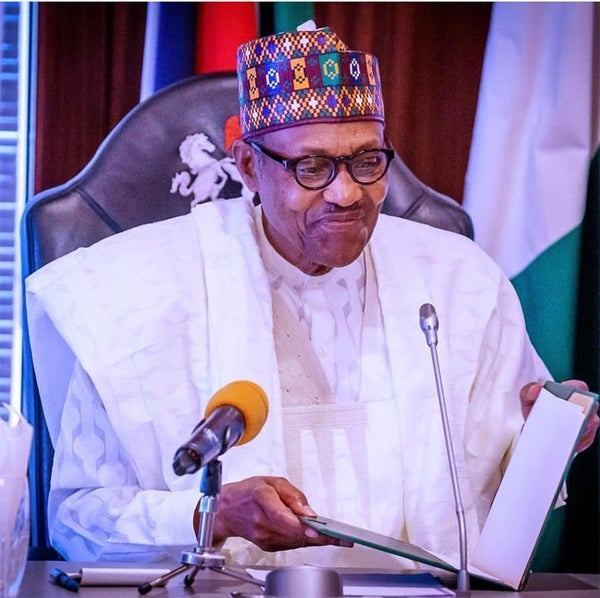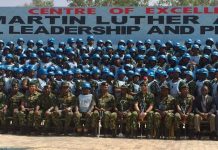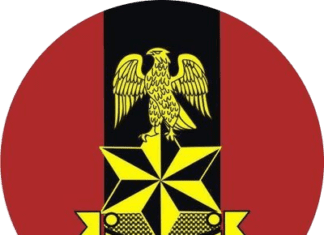By Lawrence Audu
You could hardly live a day in 2014 without reading or watching news in local and international media of the menace caused by the Boko Haram terrorist group operating in North East Nigeria. We all sat and watched almost as Boko Haram targeted and killed thousands of civilians and displaced many in the North East region.
Before the renewed vigor and morale of the Nigerian military, the government of the day appeared to be out of ideas as Boko Haram established a “caliphate” in the north of the country, terrorizing the local population and forcing more than 2.6 million people to flee their homes.
The activities of the group went almost non-challenged as they adopted even more sophisticated tactics having received training and guidance from international Jihadist groups such as Al-Qaeda in the Maghreb, Al-Shabaab.
The steady stream of suicide bombings, assassination campaigns, and kidnappings, especially the kidnap of more than 200 girls from their school in Chibok, Borno State, mass attacks and the territorial gains that followed between 2011-2015 ranked the group as the top three deadliest terrorist organizations in the world. According to Global Terrorism Index, the death toll recorded as a result of Boko Haram terrorism was at its peak in these years.
Source: Global Terrorism Index
This was indeed the precarious situation inherited by the newly elected government of Muhammadu Buhari in 2015. Only a few keen observers could believe the Muhamadu Buhari administration would indeed turn the tides given the sophistication of the Boko Haram group.
President Muhammadu Buhari was quick to meet with his military chiefs and also with the leaders of neighboring Niger, Benin, Cameroon and Chad in a bid to establish a stronger frame work of cohesion to battle the insurgency.
In his inaugural speech, President Muhammadu Buhari expressed his resolve to tackle the dreaded Boko Haram group. He announced the relocation of the military command and control center from the capital Abuja, to Maiduguri, the main city at the heart of the insurgency, until the conflict is resolved.
Did the Commander-in-Chief of the Nigerian Armed Forces really keep to his promises to Nigeria? Well, this was debatably in many quarters; however evidence is pointing towards the nation that the Military under the leadership of President Muhammadu Buhari has made significant gains over the last five years. In a report by the University of Maryland, it stated the number of deaths had reduced significantly
After a peak in Boko Haram–related violence in 2014 and 2015, the number of casualties attributed to the group has fallen dramatically. Credit must be given to the Nigerian Military with a bit of assistance from foreign counterparts, the group’s potency to inflict sustainable physical, emotional and psychological pain has been significantly watered downed.
According to the Council of Foreign Relations the total death in incidence involving Boko Haram has reduced drastically. The graph below illustrates the above claim.
It’s true that Boko Haram has been battered and factionalized. The group controls less territory and has claimed far fewer lives than it did in 2014 and 2015, when it was declared the world’s deadliest terrorist group.
For the most part of 2020, Boko Haram has remained out of the headlines ever since.
The evidence suggests that Boko Haram has recently focused more of its attacks on state targets. In 2014 and 2015, three quarters of Boko Haram attacks targeted civilians, according to data from the Nigeria Security Tracker. Since 2016, Boko Haram attacks have targeted civilians less than two thirds of the time and in 2019, the number of clashes with the state and civilian attacks have been even less. From a peak in 2015 of more than 5,000, the number of deaths attributed to Boko Haram has fallen off significantly to less than 500 a year for the past two years.
This decline followed a sustained military campaign launched against Boko Haram in 2015 by the Nigerian government. Credit must be given to the officers and soldiers of the Nigerian Armed Forces for showing bravery in the face of danger and remaining patriotic to the Nigerian dream.
For more than a decade the group disturbed the peace and tranquility of Nigeria, Insecurity in the North Eastern no doubt caused great economic and social hardship on for citizens living in the conflict zone. The Nigerian Military maintain this great stride as decisive triumph over Boko Haram insurgency is not farfetched. Winning the War should be maintained as only a premier phase of solving the Boko Haram question even as efforts in keeping the peace is consolidated upon to achieve maximum triumph.
It can thus be said that the Muhammadu Buhari led administration has indeed lived up to expectations and it consequently behooves on all well-meaning Nigerians to lend its support to the efforts in addressing the various security challenges in the country.
Join Television Nigerian Whatsapp Now
Join Television Nigerian Facebook Now
Join Television Nigerian Twitter Now
Join Television Nigerian YouTUbe Now





